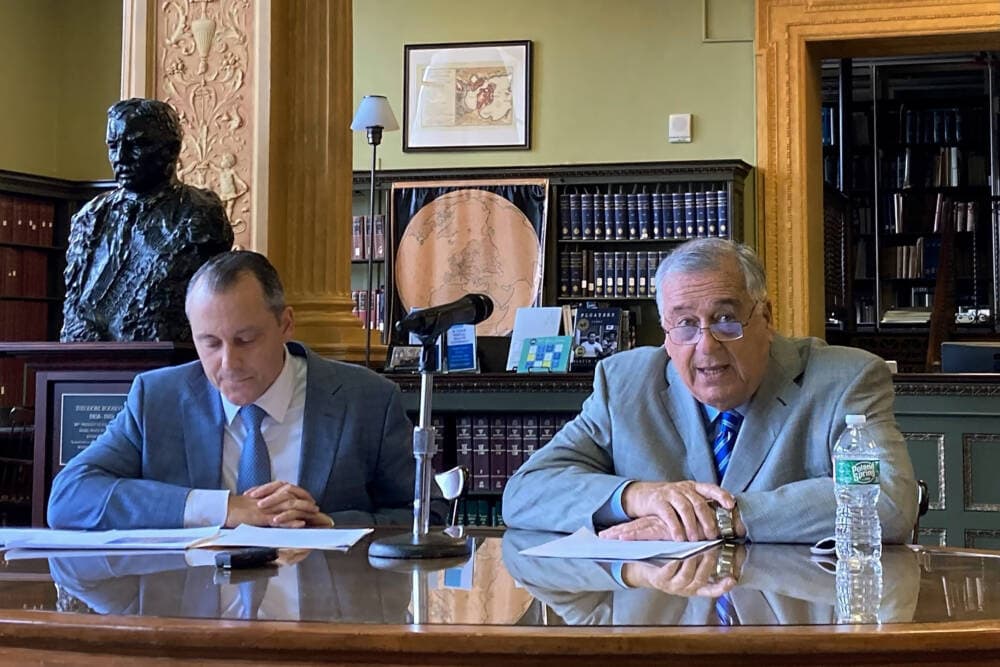Advertisement
Massachusetts House approves $56B state budget plan

The Massachusetts House approved a $56.2 billion state budget plan Wednesday that would allow for the online sale of lottery games while setting aside extra spending for universal school meals and the problem-plagued Massachusetts Bay Transportation Authority, and to bulk up the state’s “rainy day” fund.
The plan, approved after three days of debate, splits an estimated $1 billion in anticipated revenue from the new “millionaire’s tax,” which Massachusetts voters approved last year, between education and transportation initiatives.
The $500 million for education in the plan includes $161 million for the universal school meal program, $100 million for the installation and maintenance of “clean energy” infrastructure projects in schools, and $50 million for Massachusetts students looking to work in high-demand jobs.
Half of the $500 million dedicated to transportation would go to capital investments at the beleaguered MBTA, while another $100 million would go toward highway bridge repairs.
Democratic House Speaker Ronald Mariano said the push for universal school meals would make Massachusetts the fifth state to enact such a program.
Democratic Gov. Maura Healey had called for funding for universal school meals in two supplemental budget proposals to cover the program for the current school year and the next. The program was supported by federal funding during the pandemic. That funding has since dried up.
The House budget plan would also funnel money into the state’s stabilization, or “rainy day,” fund. The account currently has about $7.1 billion. The proposed budget would bring the total to just over $9 billion, according to House budget writers.
Building up the state’s rainy day account will keep the state’s bond rating strong, which will in turn let the state borrow money at a lower interest rate, according to Democratic House Ways and Means Chair Aaron Michlewitz.
The budget proposal also includes $100 million in rate increases for child care providers, $180 million in rental assistance for families, additional eviction protections for renters, and a two-year pilot program to expand eligibility to ConnectorCare, the state’s subsidized health insurance program.
Advertisement
The plan calls for the creation of online lottery tickets and games to compete with the introduction this year of online sports betting, with a portion of the funds going to early education. Some convenience store owners have warned that online lottery tickets could reduce the number of people coming into their stores.
Democratic House Speaker Ronald Mariano said the budget plan “will help to make Massachusetts more affordable for residents, while allocating support for the Commonwealth’s most consequential institutions.”
Critics were quick to point out much of the debate occurred out of sight of the public and the press, with lawmakers periodically gathering behind closed doors to hash out which amendments would make it into the final bill before emerging to approve the changes with little public discussion.
“Just because House lawmakers go behind closed doors to debate important taxpayer funded spending decisions doesn’t make it right,” said Paul Craney of the Massachusetts Fiscal Alliance.
The House budget plan follows the release last month of Healey’s $55.5 billion state budget proposal.
The budget debate now shifts to the Massachusetts Senate, which will draft and debate their own version of the budget.
A final budget must be in place by the start of the new fiscal year on July 1.